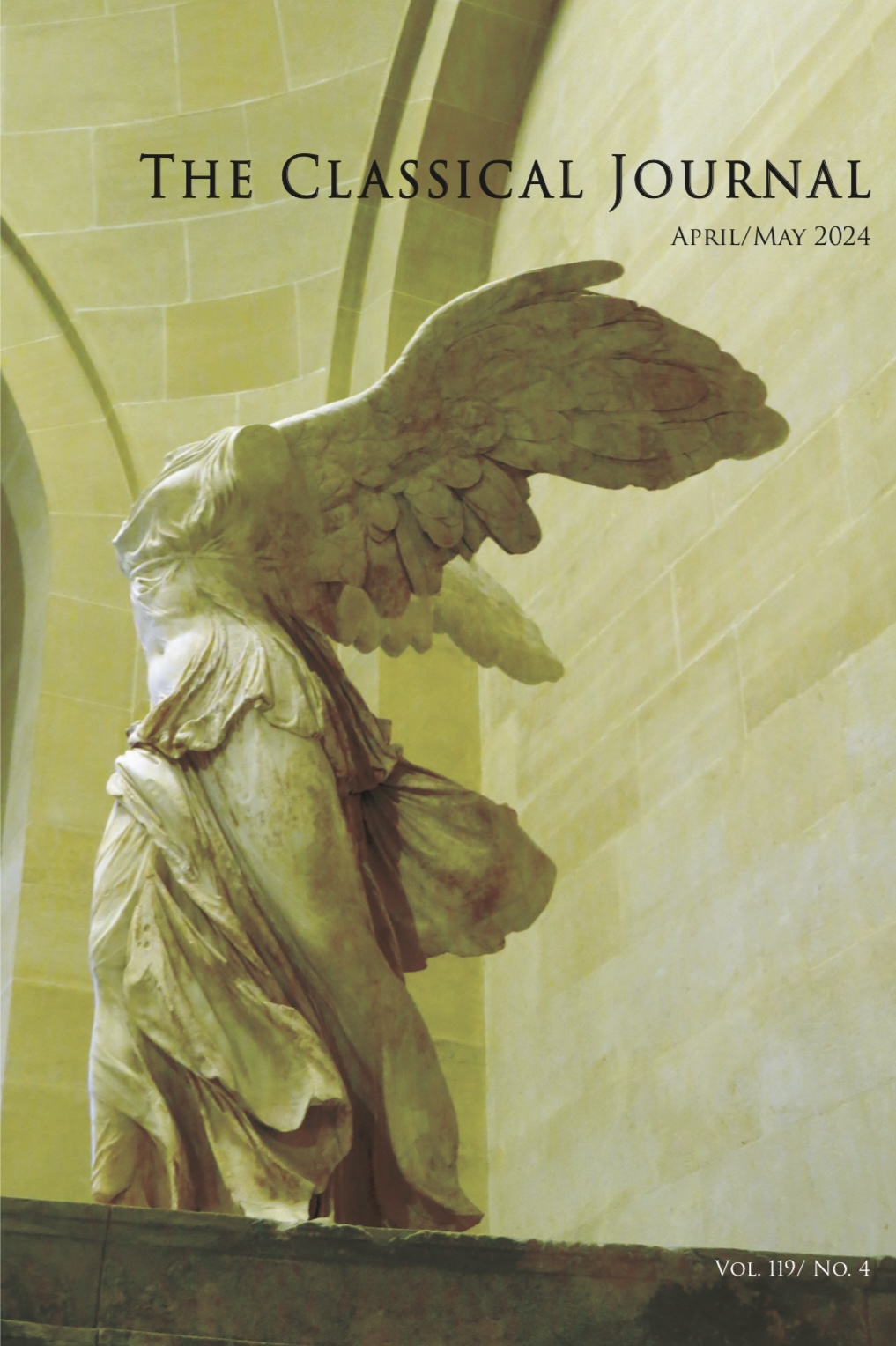The following articles are contained in CJ
101.4
Abstracts of Articles
THE DEVIOUS NARRATOR OF THE ODYSSEY
The narrator of the Odyssey, who appears objective and perfectly reliable, frequently misleads his listeners/readers by raising false expectations, making surprising shifts, concealing facts, leading them to believe inaccurate representations and leaving them in ambiguity. In this respect the narrator resembles his underhanded hero and puts his relationship with the audience on a footing similar to that between Odysseus and the other characters. This narrative strategy gives the audience the sense of uneasiness and insecurity that characterizes the world of the Odyssey.
THE UNITY OF PLATO'S CRITO
I argue that Plato models the entire Crito on an Athenian legal procedure called graphë paranomôn, an indictment against illegal decrees. In response to Crito's proposal for escape, Socrates consciously initiates a process of deliberation analogous to the legal procedure. In addition to numerous structural parallels, he at one point openly alludes to the graphë paranomôn and identifies the imaginary Laws as prosecutors within the procedure. The legal analogy that emerges not only unifies the conversation between Socrates and Crito but also explains why Plato includes the Laws and gives them such a large presence within the dialogue.
WHO'S ANTI-ROMAN? SALLUST AND POMPEIUS TROGUS ON MITHRIDATES
Contemporary scholars of Roman imperialism have discussed the ways in which ancient historians denigrate non-Romans and thereby present intellectual justifications for Roman conquest. This paper offers a case study that questions this position's validity: an examination of Sallust's Epistula Mithridatis (Hist. 4.69M) and Pompeius Trogus' speech of Mithridates (Justin 38.4-7). I argue that Sallust offers a more powerful attack on Roman foreign policy than does Trogus, whom many scholars have deemed 'anti-Roman,' and conclude that Roman historians are capable of using speeches of foreigners to engage in Roman self-criticism.
PLINY AND THE MURDER OF LARCIUS MACEDO
In Epistles 3.14 Pliny subtly promotes his persona as Pliny the Orator by describing Larcius Macedo's murder as a prosecutor might. The first section forcefully condemns the murderers through vivid imagery and references to universal servile threats. The non-legal tone of the second section illustrates Pliny's ability to link friendship with oratory in his letters.
MENIN VIRUMQUE: TRANSLATING HOMER WITH VIRGIL IN EPIGRAMMATA BOBIENSIA 46, 47 AND 64
Poems 46, 47 and 64 of the Epigrammata Bobiensia are Latin versions of Greek epigrams on teachers. The Latin poets mainly pursue word-for-word translation, except when rendering the opening words of the Iliad, which they do by citing the corresponding segment of the Aeneid. This article analyzes the translation of Homer's tag with Virgil's from the perspective of translation theory and argues that the gesture illustrates the equivalent uses of the Iliad and the Aeneid as the central school texts in the Greek and Latin grammatical schools, respectively.


